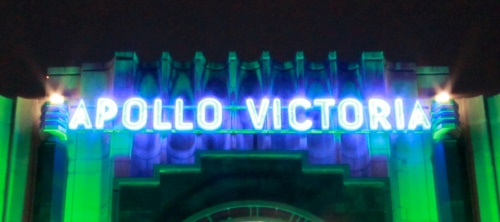
Apollo Victoria Theatre
Londres - Angleterre
Construction: 1930
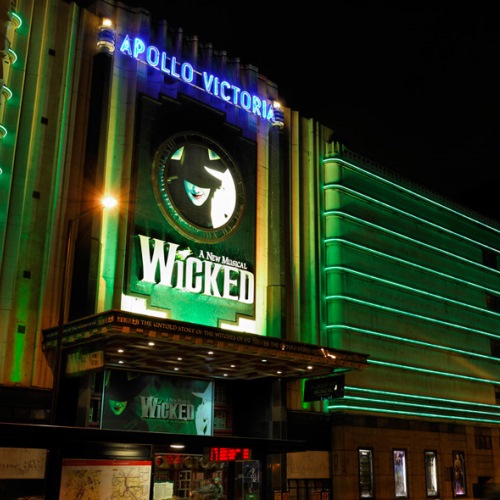
Topologie du théâtre
Nombre de salles actives: 1
Salle 1: (2304) 1930 - Actif
Accès
En métro: Victoria Tube Station
En bus: 38,73,8 & 24
Adresse: 17 Wilton Road, London, SW1V 1LG
Evolution
Bâtiment: Opened as a cinema and variety theatre, the Apollo Victoria became a venue for musical theatre, beginning with The Sound of Music in 1981, and including the long-running Starlight Express, from 1984 to 2002.
Nom: New Victoria Cinema - New Victoria Theatre
Propriétaire(s)
Ambassador Theatre Group
Remarquable
The building is of outstanding national importance within the context of the cine-theatre.

2304
1930 - Actif
David Atwell, in his influential work Cathedrals of the Movies, (1980) writes that 'as a work of architecture there is little doubt that the New Victoria is the most important cinema building to have been erected in Britain.’ Designed by Ernest Wamsley Lewis and W. E. Trent in 1929, it is situated immediately to the east of Victoria Railway Station, slotting into a narrow row of buildings between the parallel streets of Wilton Road and Vauxhall Bridge Road. The cinema has two Impressive, though rather austere, Germanic Art Deco façades linked by a single foyer; the façades were originally transformed at night by seemingly endless concealed neon tubes. It was Lewis who produced the design, with Trent involved only as architect to Provincial Cinematograph Theatres, who owned the site. The concept is dramatic, the blank, streamlined horizontality of the main body of the building, faced in cast Portland stone, contrasting with the forceful verticality of the entrance bays. Two bas-relief panels by Newbury Abbot Trent, are mounted either side of the Wilton Road entrance, accompanied by a small figure of Charlie Chaplin carved into the wall. A more eye-catching relief, by the same artist, paying homage to film, enhances the main staircase.
The auditorium Is said to have been conceived as ‘a mermaid’s dream of heaven’, a pale blue and green undersea wonderland of marine life beautifully enhanced by green, pink and blue lighting. The original stalactite lighting has long since disappeared, and part of the proscenium arch is in store, while a dolphin seems to have disappeared into the waves, along with lovely mermaid finials from the main staircase.
The New Victoria, as it was originally called, featured stage shows from the start. In 1933 the Royal Matinée for King George V was staged here, partly because of its convenient proximity to Buckingham Palace. Since then successes have included The Sound of Music with Petula Clark and Camelot with Richard Harris. Andrew Lloyd Webber’s hit show Starlight Express opened here in 1984, and continued to attract good audiences into the new millennium.
Remarkable in the building industry, as Atwell points out, is the fact that the building was completed well within budget.
Opened as a cinema and variety theatre, the Apollo Victoria became a venue for musical theatre, beginning with The Sound of Music in 1981, and including the long-running Starlight Express, from 1984 to 2002.
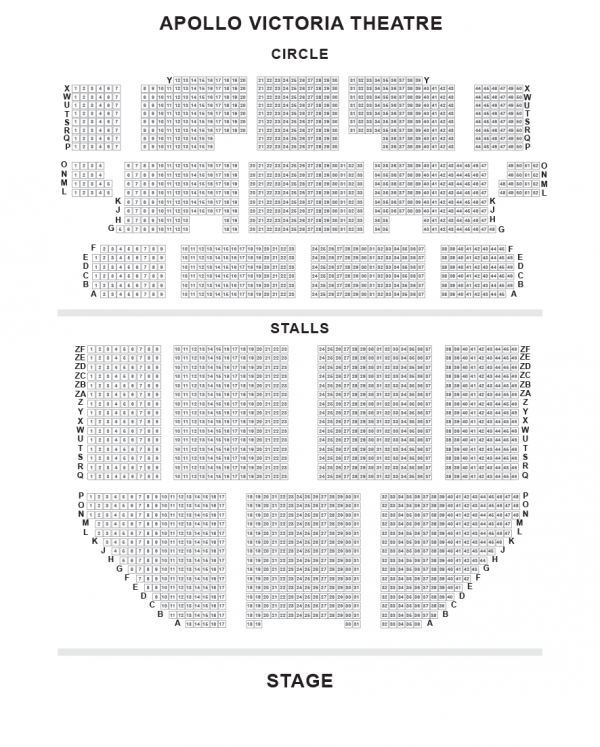
Infos complémentaires:
The Stalls are broken down into 7 unique sections, making the auditorium feel more like a concert venue than a theatre. Walking into the space can feel overwhelming, but the divisions make it easy to navigate and all share a similarly unobstructed view. The section is over 30 rows deep, divided by a large gangway halfway back, where the seating then becomes blocked rather than fanned out.
The best seats are in the centre block due to the rake and absence of circle overhang, allowing a full view of the stage and action. Seats towards the end of the rows, in particular the higher numbers, start to become more restricted but as this is built into the price structure they can be excellent seats for those looking for a bargain. Seat Plan recommends these seats in the stalls above the similarly priced seats at the back of the Dress Circle, as although the view is sometimes obscured due to the angle and set pieces, you feel close and connected to the action. As the stalls move backwards the overhang of the Dress Circle becomes more of a problem, something that is again reflected in the price structure. As Wicked is a highly visual show, with a lot of set pieces and a stunning flying effect, some of this can be missed at the back of the stalls. We would advise those wanting a clearer view to sit in the Dress Circle, which is priced the same as the rear of the stalls.
The sheer size of the Dress Circle takes you back as you enter the auditorium, and despite the lack of any significant visual obstructions each seating section is distinctly different. Having sat both in the third section back and the first, the difference is indeed clear and Seat Plan would recommend spending that bit more for a more enjoyable performance.
The front section of the Dress Circle allows perfect viewing of the show, and despite the height of the theatre you do feel part of the action. The middle section has some restrictions due to the safety bars around the stairwell and should be avoided if possible for other seats for the same price. The back section of the Dress Circle, despite being fairly unobstructed feels a long way from the stage. The discounted ticket price may appeal to those who have seen the show before, but those with children may find themselves distracted by the view of the seats in front of them. As the theatre is ‘air-cooled’ rather than fully air conditioned, this section can get very hot. The stairwells again create sight problems and restrict some leg room around them.
New Victoria Cinema - New Victoria Theatre
The building is of outstanding national importance within the context of the cine-theatre.
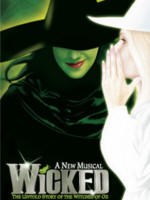
Musical
Original London
1) Wicked (Original London)
Joué durant 14 ans 2 mois actuellement
Première preview: jeu. 07 septembre 2006
Première: mer. 27 septembre 2006
Dernière: Open end
Compositeur: Stephen Schwartz •
Parolier: Stephen Schwartz •
Libettiste: Winnie Holzman •
Metteur en scène: Joe Mantello •
Chorégraphe: Wayne Cilento •
Avec: Idina Menzel (Elphaba), Helen Dallimor (Glinda), Nigel Planer (The Wizard), Miriam Margolyes (Madame Morrible), Adam Garcia (Fiyero), Katie Rowley-Jones (Nessarose), Andy Mace, Nicky Griffiths, Kerry Washington, James Gillan, Martin Ball, Simon Hardwick.
Commentaire: The London show was tailored slightly for a British audience, with some changes in dialogue, choreography, and special effects. The London production celebrated its fifth anniversary on September 27th 2011 with a special curtain call featuring former West End cast members. After Idina Menzel's three-month run she was replaced by Kerry Ellis.
Other Elphabas have included Alexia Khadime and Rachel Tucker; with Dianne Pilkington and Louise Dearman as Glindas; and Oliver Tompsett, Lewis Bradley, Lee Mead (Fiyeros), and Desmond Barrit, Sam Kelly, Clive Carter (Wizards). In both New York and London the show initially received mixed reviews, but it seems to be a critic-proof show, and has had a phenomenal world-wide box office success. (plus)
Presse: NICHOLAS DE JONGH du THE EVENING STANDARD: "Remarkable kaleidoscope of magical shocks, surprises and sensations. Wicked works like a dream."
PAUL TAYLOR for THE INDEPENDENT: "I enjoyed very little...The songs sound like dozens you've heard before. The acting is, by and large, appalling. "
MICHAEL BILLINGTON du THE GUARDIAN: "Efficient, knowing and highly professional but more like a piece of industrial product than something that genuinely touches the heart or mind."
CHARLES SPENCER du THE DAILY TELEGRAPH: "Witty, enjoyable...No one could accuse Wicked of being a great musical – indeed at times it's a bit of a mess - but it proves far more enjoyable than I had dared to hope"
BENEDICT NIGHTINGALE du THE TIMES: "Songs bang out, along with iffy lyrics and not-so-witty dialogue…I’d rather see The Wizard of Oz 20 times than this ersatz show once."
Plus d'infos sur cette production:
Plus d'infos sur ce musical

Musical
Original London
9) Movin' Out (Original London)
Joué durant 1 mois 1 semaine
Nb de représentations: 56 représentations
Première preview: 28 March 2006
Première: 10 April 2006
Dernière: 22 May 2006
Compositeur: Billy Joel •
Parolier: Billy Joel •
Libettiste:
Metteur en scène: Twyla Tharp •
Chorégraphe: Twyla Tharp •
Avec: Ron Todorowski (Eddie), Holly Cruikshank (Brenda), David Gomez (Tony), Laura Costa Chaud (Judy), Matt Dibble (James), James Fox/Darren Reeves (Piano-man) and an ensemble of 20 dancers.
Commentaire: Twyla Tharp had choreographed and directed a collection of Billy Joel songs into a “rock ballet”. With the rock band perched at the back onstage, a team of non-singing dancers performed the trademark athletic choreography while a “piano-man” sang out Billy Joel’s songs. The show opened on Broadway in October 2002 and ran for three years and 1,303 performances. However, even though the British critics recognised the brilliance and excitement of the dancing, they were mostly unimpressed with the conception of the show, and felt that five-star dancing was not enough to hold together a three-star story. The limited run was originally booked until mid-July (when it would make way for “Wicked”) but was taken off after just seven weeks. (plus)
Presse: SARAH FRATER for THE EVENING STANDARD says, " Tissue-thin drama...bombastic characters, although Tharp's dancers and Joel's music are every bit as sensational as you've heard." ZOE ANDERSON for THE INDEPENDENT says, "The dancing is athletic, hard-driven and relentlessly slick...Barked out by Fame Academy finalist James Fox, lyrics and melodic lines are blurred. The songs, thumped out by a 10-piece band, don't give Tharp much rhythmic variety." JUDITH MACRELL for THE GUARDIAN says, "Feels closer to modern ballet than pop tribute...Yet enjoyable as individual moments are, this show remains an unsatisfactory hybrid." CHARLES SPENCER for THE DAILY TELEGRAPH says, "I was amazed to discover that I knew most of the 20-plus songs included here without ever quite realising that I did, as if I had somehow absorbed them by osmosis. When combined with Twyla Tharp's often thrilling choreography, this is a show that really packs a punch." DEBRA CRAINE for THE TIMES says, "It’s the best show dancing in town." LISA MARTLAND for THE STAGE says, "Tharp’s choreography is outstanding."
Plus d'infos sur cette production:
Plus d'infos sur ce musical
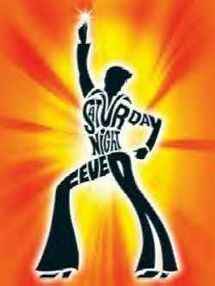
Musical
Revival
8) Saturday Night Fever (Revival)
Joué durant 1 an 7 mois 2 semaines
Première preview: 02 July 2004
Première: 06 July 2004
Dernière: 18 February 2006
Compositeur: Bee Gees •
Parolier: Bee Gees •
Libettiste: Arlene Phillips • Nan Knighton • Paul Nicholas • Robert Stigwood •
Metteur en scène: Arlene Phillips •
Chorégraphe: Arlene Phillips •
Avec: Stephane Anelli (Tony Monero), Zoe Ebsworth (Stephanie), Kym Marsh (Annette), Alex Jessop (Bobby C), Shaun Williamson (Monty), Mark Faith (Fusco/Frank Monero), Joyce Springer (Flo Manero), Russell Walker (Frank Junior), Lucy Banfield (Maria), Tom Goodall (Cesar)
Commentaire: This was a completely new version, differing in many respects from the earlier Palladium and touring productions. Musical changes included the addition of just one new song—Words” sung by Tony and Stephanie - replacing “More than a Woman”, but the book itself and the structure of the show had undergone significant changes. (plus)
Presse: NICHOLAS DE JONGH for THE EVENING STANDARD says, "Tends to wilt and droop as if in need of a vitamin B12 injection...leaves me deflated."
ELISABETH MAHONEY for THE GUARDIAN says, "Many..exuberant moments in the show...a sketchy plot at best ."
CHARLES SPENCER for THE DAILY TELEGRAPH says, "The dancing's hot, the acting's not."
BENEDICT NIGHTINGALE for THE TIMES says, "I wish the piece had more plot, more atmosphere, more bite...Still, those Spanish Americans bring style, sensuality and terrific fizz to their dancing"
IAN SHUTTLEWORTH for THE FINANCIAL TIMES says, "Delivers a bland, shiny 1990s facsimile of its 1970s subject matter."
Plus d'infos sur cette production:
Plus d'infos sur ce musical
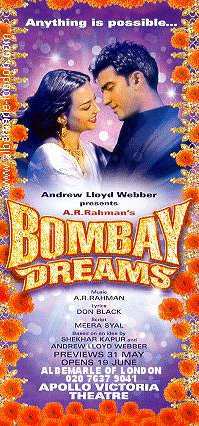
Musical
Original
7) Bombay Dreams (Original)
Joué durant 1 an 12 mois
Nb de représentations: 829 représentations
Première preview: 31 May 2002
Première: 19 June 2002
Dernière: 13 June 2004
Compositeur: A.R. Rahman •
Parolier: Don Black •
Libettiste: Meera Syal • Thomas Meehan •
Metteur en scène: Steven Pimlott •
Chorégraphe: Anthony Van Laast • Farah Khan •
Avec: Avec: Stephen Rahman-Hughes (Akaash), Zehra Naqvi (Priya), Ravin J Ganatra (Madan), Munir Khairdin (Vikram), Royce Ullah (JK), Raj Ghatak (Sweetie), Sophiya Haque (Rani), Nila Aalia (Kitty)
Commentaire: The West End production ran for two years, undergoing some re-writing and changes during the course of its run. A heavily re-written version, with book additions by Thomas Meehan opened on Broadway in April 2004 and ran for eight months (284 performances). The New York version used the same British production team, though many songs were cut and several new ones added to the score. (plus)
Presse: DARREN DALGLISH says, "A big disappointment as I expected more humour and more Bollywood energy, instead we have a musical that fails to hit the high notes."
RHODA KOENIG for THE INDEPENDENT says, "Gooey Bombay mix that fails to fulfil its promise."
MICHAEL COVENEY for THE DAILY MAIL says, "A real Bombay dazzler ."
RICHARD MORRISON for THE TIMES says, "To turn this mishmash into a hot ticket is going to take more than a spoonful of curry powder."
NICHOLAS DE JONGH for THE EVENING STANDARD "It's a bold, inventive shot at something new that misses the target. "
CHARLES SPENCER for THE DAILY TELEGRAPH says, "Though there is much to admire in Bombay Dreams - notably Rahman's wonderfully fresh, exciting and sometimes yearningly romantic score...there is much more that disappoints."
ALASTAIR MACAULAY for THE FINANCIAL TIMES says, " Pimlott brings off some non-narrative musical passages beautifully."
MICHAEL BILLINGTON for THE GUARDIAN says, "...clumsy, over-plotted book." And goes on to say, "The acting honours are stolen by .... Raad Rawi as the white-coated Mafia boss and Shelley King as an astringent gossip colum nist."
JOHN PETER for THE SUNDAY TIMES says, "Bombay Dreams is a spectacular tribute to Bollywood, though it can't escape that genre's limitations."
Plus d'infos sur cette production:
Plus d'infos sur ce musical
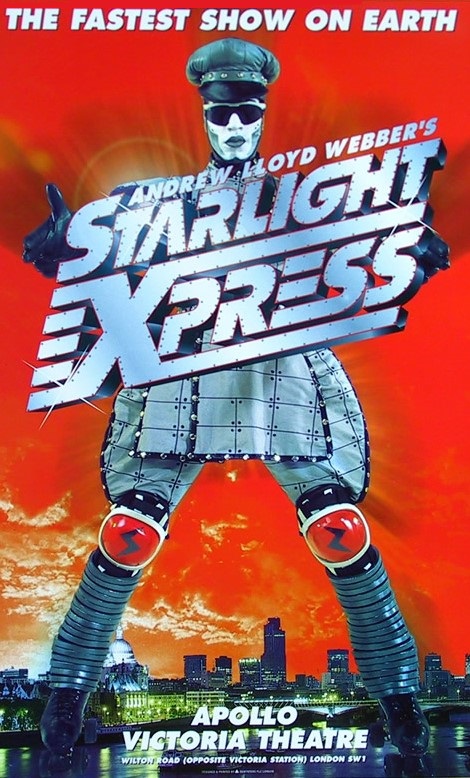
Musical
Recréation
6) Starlight Express (Recréation)
Joué durant 9 ans 1 mois 3 semaines
Première preview: 23 November 1992
Première: 23 November 1992
Dernière: 12 January 2002
Fait partie de: London Run
Compositeur: Andrew Lloyd Webber •
Parolier: Don Black • Richard Stilgoe •
Libettiste:
Metteur en scène: Trevor Nunn • Dion McHugh •
Chorégraphe: Arlene Phillips •
Avec: Mark Walker (Greaseball), Samantha Lane (Ashley), Voyd (Buffy), Caron Cardelle (Dina), Reva Rice (Pearl), Lon Satton (Poppa), John Partridge (Electra), Greg Ellis (Rusty)
Commentaire: In November 1992, the London production, christened The New Starlight Express, was re-launched with heavy revisions to the material, partly influenced by the subsequent productions described below. Five songs ("Crazy", "He'll Whistle at Me", "Make Up My Heart", "Next Time You Fall in Love", "The Megamix") were added, 12 songs (the Overture, "Engine of Love", "Call Me Rusty", "Hitching and Switching", "There's Me", "Belle The Sleeping Car", "Heat Three", "Wide Smile", "High Style", "No Comeback", "Only He", "Only You") and two characters ("C.B." and "Belle") were cut.
Belle, having proved incompatible with the shorter 4-race system on Broadway, was cut along with C.B. Cutting C.B. required a near complete overhaul of the plot (though the lighting design didn't change – his spotlight still came up in "Freight" right up to the last performance of the show), as without a clear cut villain, Rusty, Electra and Greaseball had to cause their own problems or be the victims of circumstance to move the story along.
The "Overture" was scrapped, with the "Entry of National Trains" moved to the opening of the show from its former place following "Freight". The energetic, high speed "He Whistled at Me" was reworked into "He'll Whistle at Me" and moved to earlier on in the show. In its original place was the languid ballad "Make Up My Heart" that was first recorded on a 1987 studio recording. "Pumping Iron" was moved to immediately after "AC/DC", shifting the intention from merely boasting to a direct challenge from Greaseball to the newcomer and cutting off the end of the preceding song. This meant that the 2nd and 3rd class Sleepers were no longer seen, as the performers who had filled those roles were now on-stage as the female Components. Rather than winning a heat each, as in the 5-race structure, Greaseball and Electra come first and second in the first heat, securing places in the final for each of them. Rusty now didn't race at all until the final, only reluctantly taking Poppa's place after the title song. Poppa won the second heat with Bobo coming second.
"The Rap" was completely re-written, as the debate – whether or not Rusty should be allowed to race in Poppa's place when he'd already been disqualified – was completely redundant. It became an anthem to how great racing is, rather than an argument. Pearl still switched engines to Electra, leaving Dinah uncoupled. With Belle gone, Ashley and Buffy carried "Rolling Stock (Reprise)" by themselves, allowing them each more vocals. After the Uphill Final, when Dinah uncouples Electra, with no C.B. he partners Buffy instead for the Downhill Final. Rather than being crashed intentionally, Electra and Greaseball crash accidentally at the end of the race. Electra then took C.B.'s place in "One Rock 'n' Roll Too Many", and also took one of Greaseball's spoken lines("You mean I could be converted to steam?" became "D'you think I could be converted to steam?") afterwards to be included in the scene. As a second finale, "The Megamix" was added. It consists of a few phrases from most of the songs in the show, including one that by the end was no longer there – "He'll Whistle at Me" was cut in 1996, but remained represented. (plus)
Presse:
Plus d'infos sur cette production:
Plus d'infos sur ce musical
Parolier: Don Black • Richard Stilgoe •
Libettiste:
Metteur en scène: Trevor Nunn • Dion McHugh •
Chorégraphe: Arlene Phillips •
Avec: Mark Walker (Greaseball), Samantha Lane (Ashley), Voyd (Buffy), Caron Cardelle (Dina), Reva Rice (Pearl), Lon Satton (Poppa), John Partridge (Electra), Greg Ellis (Rusty)
Belle, having proved incompatible with the shorter 4-race system on Broadway, was cut along with C.B. Cutting C.B. required a near complete overhaul of the plot (though the lighting design didn't change – his spotlight still came up in "Freight" right up to the last performance of the show), as without a clear cut villain, Rusty, Electra and Greaseball had to cause their own problems or be the victims of circumstance to move the story along.
The "Overture" was scrapped, with the "Entry of National Trains" moved to the opening of the show from its former place following "Freight". The energetic, high speed "He Whistled at Me" was reworked into "He'll Whistle at Me" and moved to earlier on in the show. In its original place was the languid ballad "Make Up My Heart" that was first recorded on a 1987 studio recording. "Pumping Iron" was moved to immediately after "AC/DC", shifting the intention from merely boasting to a direct challenge from Greaseball to the newcomer and cutting off the end of the preceding song. This meant that the 2nd and 3rd class Sleepers were no longer seen, as the performers who had filled those roles were now on-stage as the female Components. Rather than winning a heat each, as in the 5-race structure, Greaseball and Electra come first and second in the first heat, securing places in the final for each of them. Rusty now didn't race at all until the final, only reluctantly taking Poppa's place after the title song. Poppa won the second heat with Bobo coming second.
"The Rap" was completely re-written, as the debate – whether or not Rusty should be allowed to race in Poppa's place when he'd already been disqualified – was completely redundant. It became an anthem to how great racing is, rather than an argument. Pearl still switched engines to Electra, leaving Dinah uncoupled. With Belle gone, Ashley and Buffy carried "Rolling Stock (Reprise)" by themselves, allowing them each more vocals. After the Uphill Final, when Dinah uncouples Electra, with no C.B. he partners Buffy instead for the Downhill Final. Rather than being crashed intentionally, Electra and Greaseball crash accidentally at the end of the race. Electra then took C.B.'s place in "One Rock 'n' Roll Too Many", and also took one of Greaseball's spoken lines("You mean I could be converted to steam?" became "D'you think I could be converted to steam?") afterwards to be included in the scene. As a second finale, "The Megamix" was added. It consists of a few phrases from most of the songs in the show, including one that by the end was no longer there – "He'll Whistle at Me" was cut in 1996, but remained represented. (plus)
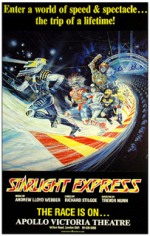
Musical
Original
5) Starlight Express (Original)
Joué durant 17 ans 9 mois 3 semaines
Nb de représentations: 7406 représentations
Première preview: 27 March 1984
Première: 27 March 1984
Dernière: 12 January 2002
Fait partie de: London Run
Compositeur: Andrew Lloyd Webber •
Parolier: Don Black • Richard Stilgoe •
Libettiste:
Metteur en scène: Trevor Nunn •
Chorégraphe: Arlene Phillips •
Avec: Jeff Shankley (Greaseball), Chrissy Wickham (Ashley), Nancy Wood (Buffy), Frances Ruffelle (Dina), Stephanie Lawrence (Pearl), Michael Staniforth (C.B.), Lon Satton (Poppa), Jeffrey Daniel (Electra), Ray Shell (Rusty)
Commentaire: The performers were required to race around the theatre on roller-skates. They underwent several months of skating training to be able to take part and the theatre itself had to undergo major alterations to accommodate racing tracks running through the auditorium, up to the circle, then back down through the stalls. The show went on to become one of the major hits of all time, with world-wide productions. (plus)
Presse:
Plus d'infos sur cette production:
Plus d'infos sur ce musical
Parolier: Don Black • Richard Stilgoe •
Libettiste:
Metteur en scène: Trevor Nunn •
Chorégraphe: Arlene Phillips •
Avec: Jeff Shankley (Greaseball), Chrissy Wickham (Ashley), Nancy Wood (Buffy), Frances Ruffelle (Dina), Stephanie Lawrence (Pearl), Michael Staniforth (C.B.), Lon Satton (Poppa), Jeffrey Daniel (Electra), Ray Shell (Rusty)

Musical
Original
4) Starlight Express (Original)
Joué durant
Première preview: 27 March 1984
Première: 27 March 1984
Dernière: Inconnu
Fait partie de: London Run
Compositeur: Andrew Lloyd Webber •
Parolier: Don Black • Richard Stilgoe •
Libettiste:
Metteur en scène: Trevor Nunn • Dion McHugh •
Chorégraphe: Arlene Phillips •
Avec:
Commentaire: The West End production, directed by Trevor Nunn and choreographed by Arlene Phillips opened on 27 March 1984 at the Apollo Victoria Theatre, where it ran for 7,406 performances, closing on 12 January 2002. Original cast members included Stephanie Lawrence, Frances Ruffelle, Jeff Shankley, Jeffrey Daniel and Ray Shell.Starlight Express had one of the most spectacular stage sets ever created. As well as the steeply-banked central arena, there were swooping race tracks that extended into and around the theatre's auditorium. One of the set's most dramatic elements was the six-tonne steel bridge. During the show's high-speed races, the bridge lifted and tilted to connect the various levels of the set. This means the actors started racing on a track in the stalls and end up in the dress circle. (plus)
Presse:
Plus d'infos sur cette production:
Plus d'infos sur ce musical
Parolier: Don Black • Richard Stilgoe •
Libettiste:
Metteur en scène: Trevor Nunn • Dion McHugh •
Chorégraphe: Arlene Phillips •
Avec:

Musical
Revival
3) Fiddler on the Roof (Revival)
Joué durant 4 mois
Nb de représentations: 151 représentations
Première preview: 28 June 1983
Première: 28 June 1983
Dernière: 29 October 1983
Compositeur: Jerry Bock •
Parolier: Sheldon Harnick •
Libettiste: Joseph Stein •
Metteur en scène: Jerome Robbins •
Chorégraphe: Jerome Robbins •
Avec: Topol (Tevye), Thelma Ruby (Golde), Maria Charles (Yente), David Jackson (Lazar Wolf), Steven Mann (Perchick), Jane Gumett (Tzeitel), Peter Whitman (Motel), Lisa Jacobs (Chava)
Commentaire:
Presse:
Plus d'infos sur cette production:
Plus d'infos sur ce musical
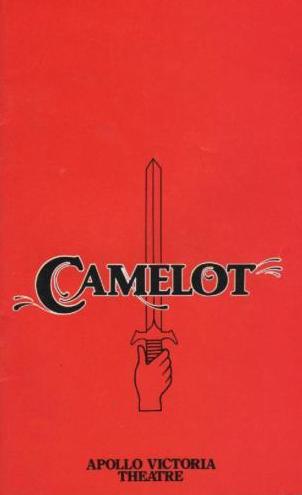
Musical
Revival
2) Camelot (Revival)
Joué durant 2 mois 2 semaines
Nb de représentations: 180 représentations
Première preview: Inconnu
Première: 23 November 1982
Dernière: 05 February 1983
Compositeur: Frederik Loewe •
Parolier: Alan Jay Lerner •
Libettiste: Alan Jay Lerner •
Metteur en scène: Frank Dunlop •
Chorégraphe: Buddy Schwab •
Avec: Richard Harris (King Arthur), Fiona Fullerton (Guinevere), William Squire (Merlin), Robert Meadmore (Sir Lancelot), Michael Howe (Mordred), Robin Bailey (Pellinore)
Commentaire: This was described as a disastrous revival, and one of the worst productions seen in the West End for a long time. Much of the blame was laid at the feet of Richard Harris who was accused of “walking through” the part without any effort. The Plays & Players critic said: “There is no denying the potency of Richard Harris’s personality. It is merely sad to remember that many years ago he was an actor.” (plus)
Presse:
Plus d'infos sur cette production:
Plus d'infos sur ce musical
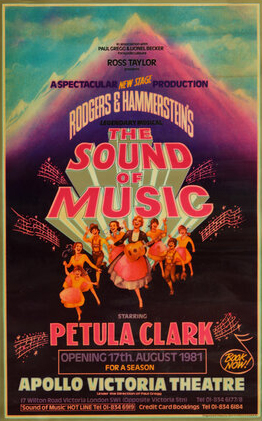


.png)
.png)





